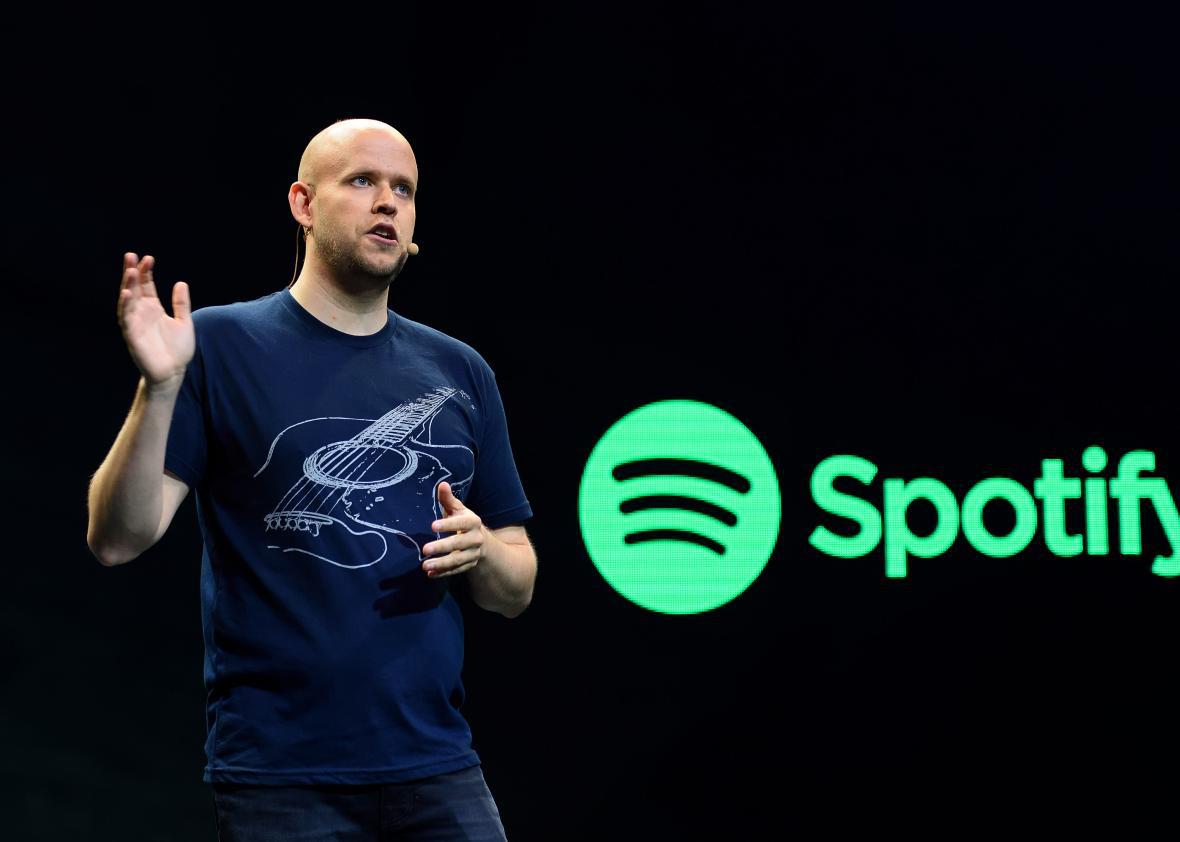Due to pressure from multiple groups and outlets, it looks like white supremacists are going to have to look a little bit harder to enjoy the musical stylings of a number of white supremacist/neo-Nazi/completely trash bands.
On Wednesday, Spotify moved to remove a number of bands—most of them metal or punk groups—whose music includes white supremacist and hateful messages. The streaming service’s decision was made in response to Paul Resnikoff’s piece in Digital Music News on Monday, “I Just Found 37 White Supremacist Hate Bands on Spotify,” which highlighted the presence of almost 40 different bands on Spotify that were labeled as racist by the Southern Poverty Law Center in a 2014 issue of the organization’s quarterly magazine, Intelligence Report.
Spotify released the following statement in response to Resnikoff’s article:
Spotify takes immediate action to remove any such material as soon as it has been brought to our attention. We are glad to have been alerted to this content—and have already removed many of the bands identified today, whilst urgently reviewing the remainder.
Additionally, Digital Music News pointed out that a competing music streaming website, Deezer, contacted the outlet to inform them that they, too, have taken steps to remove those same white supremacist artists. And, as reported by Pitchfork, Pandora began removing white supremacist content in 2014 and is continuing to make an effort to remove any that remains. These artists include bands such as Baker’s Dozen, Legittima Offesa, Skull Head, and White Knuckle Driver.
While Spotify has taken action now, it should be noted that, even back in 2014, Spotify was made aware of the presence of these artists on their site by the SPLC’s report. As the organization noted in a piece written shortly after their initial investigation, Apple had removed 21 of the 54 white supremacist bands outlined in the SPLC report, and had the other 33 “under review” at the time the piece was published. But, as a 2014 Noisey piece pointed out, other popular music sharing sites such as Spotify, Amazon, and the now-defunct Beats Music all failed to take action at the time.
The issue of the existence of white supremacist artists on online music sites is not a new one. As Noisey also pointed out, Punk News addressed the issue back in 2006 when they interviewed Derek Sivers, the founder and then-president of the independent music retailer CD Baby, which had helped the white supremacist group Skrewdriver put their music on iTunes. Asked why he allowed for his DIY retailer to both stock and promote music from a neo-Nazi band, Sivers said that the question of censorship in music was “too slippery of a slope.”
“Start with one album, and we’ll have to commit ourselves to a lifetime of deciding, on every album that comes in, if it’s offensive or hateful and if we should allow it,” Sivers said. “Plus, I don’t want to let complainers rule our actions.”
However, current CD Baby CEO Tracy Maddux struck a different tone on Thursday when he told Variety that the company was committed to taking down any albums on their site that promote hate speech, noting that the company “reserve[s] the right to refuse submissions of this nature, or to cancel submissions that fall into this category at any time.”
The question of how to promote free speech without promoting hate speech is, of course, not new, but the changing nature of how music is shared on the internet opens a whole range of new wrinkles. In 2013, NPR reported that German government officials were finding it increasingly difficult to ban neo-Nazi music, which, aside from being used for entertainment purposes, is also used as a tool to recruit and radicalize German youth as well as to finance their infrastructure, networks, and weaponry.
Meanwhile, concerns that it can be tricky to fairly and accurately police these things are not unfounded. Music is often filled with metaphors and hyperbole, and many of these white supremacist bands use coded language to get their messages across.
However, Spotify remains a private company, which gives them more leeway than the government has in making these decisions. Looking at this controversy through the prism of a private company making the decision not to host and profit from hateful speech, it is fair to ask whether Spotify should have acted sooner. After all, Apple took similar action years ago. And, as Resnikoff pointed out in his piece, Spotify’s alarmingly effective algorithms that help compile daily mixes and suggested artists have made it easy for users listening to white supremacist artists to find other similar groups to listen to, effectively forming a growing community on the site. Perhaps it shouldn’t have taken such a high-profile white supremacist rally for Spotify to take such precautions against profiting from hate.
